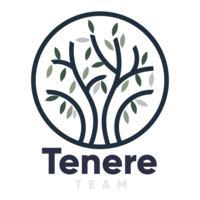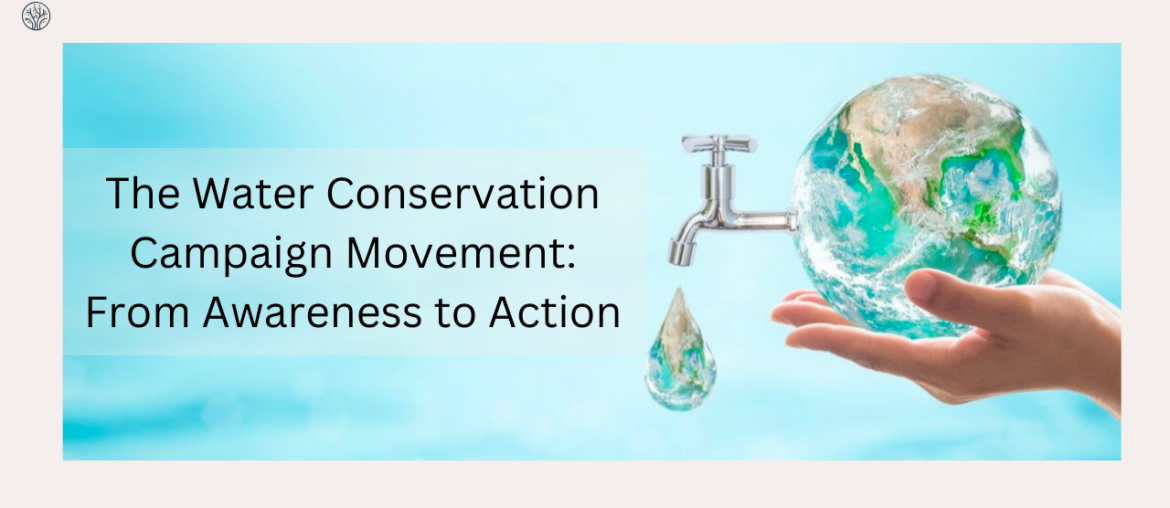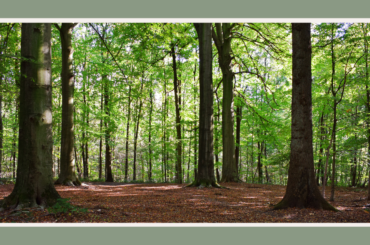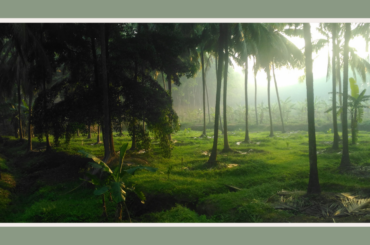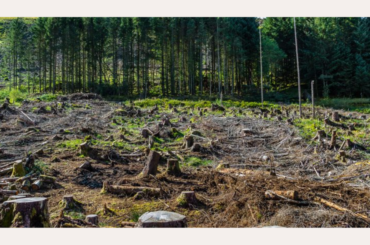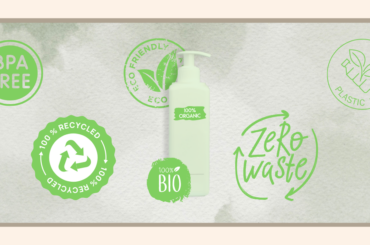As the global population continues to grow, the demand for water is increasing, putting a strain on water sources and ecosystems. In response to this growing concern, water conservation campaigns have emerged worldwide, aiming to shift awareness towards action in the quest for sustainable water management. In this article, we will delve into the significance of the water conservation campaign movement, exploring how it raises awareness and inspires real change.
Why Is It Important To Be Aware Of Water Conservation?
Water is undeniably one of the Earth’s most precious resources, but its scarcity is often overlooked. While the planet’s surface is predominantly covered by water, a staggering 96.5% of it resides in the oceans, leaving only 3% as freshwater. Out of this 3%, a mere 1.2% is accessible for drinking water, and deforestation is making water quality even worse.
This scarcity highlights the urgency of conserving this vital resource. Without concerted efforts to manage and protect our water resources, we risk facing severe freshwater shortages in the near future.
The Global Water Footprint
To understand the seriousness of our water use, think about this: in the United States, one person uses an astonishing 7,786 liters (more than 2,000 gallons) of water every day on average. This level of use is clearly not sustainable, especially considering that there isn’t an endless supply of freshwater.
Wasting water is a big problem, as shown by data from the United States Environmental Protection Agency. On average, a family spends $1,000 a year on water bills, not realizing that if they switch to fixtures with WaterSense labels and use Energy Star-certified appliances, they could save up to $380 annually. A typical family can waste around 180 gallons of water each week, which is equal to doing 300 full laundry loads with a washing machine. Inefficient irrigation systems also contribute to water loss, with about 50% of outdoor water either evaporating, getting lost in the wind, or running off.
The Price of Waste
Neglecting water conservation has serious consequences that affect many aspects of our lives. When we use too much water, we not only run out of clean water but also pollute our water sources.
Every year, about one million people die from diseases related to dirty water and poor sanitation. When people don’t have access to clean water, they get sick from waterborne diseases, and their quality of life goes down.
But it doesn’t stop there. Failing to conserve water can have catastrophic results. Water scarcity could lead to widespread loss of life, affecting humans, animals, and entire ecosystems. Some scientists even say that using up too much groundwater can increase the risk of earthquakes, showing how closely linked water is to the stability of our planet.
The Importance of Water Conservation
Water conservation involves various methods and actions to use water wisely, protect it from pollution, and ensure there’s enough clean water for the future. It includes programs, policies, and practices aimed at managing our freshwater resources sustainably. This is vital because, despite the planet’s abundant water, only a small amount is safe for us to drink. These efforts are necessary to protect our water and make sure clean water is available for generations to come.
How Can We Raise Awareness of Water Conservation?
Raising awareness about water conservation is the crucial first step in transitioning to a more sustainable water future. To address the global water crisis, we must educate people about the value of water and the dire consequences of its misuse. Water awareness campaign ideas, in this case, are a crucial pillar.
Public Water Conservation Campaigns: A Vital Tool
Public water conservation campaigns are crucial for making people aware of the need to save water and use it responsibly. These campaigns educate people from all walks of life about why it’s essential to conserve water. The main aim is to change people’s attitudes and behaviors to use water more efficiently, which helps our environment and future generations.
- Education and Awareness: The core of any water conservation effort is teaching. These programs help people learn about the benefits of saving water for society and the environment. They also introduce different ways to save water. This information gives individuals the power to make smart choices about how they use water.
- Communication Channels: Public awareness campaigns use various ways to reach many people. Traditional media, like TV, radio, and newspapers, are still essential for sharing the message. But, in today’s digital world, social media is crucial for connecting with a younger, tech-savvy audience.
- Direct Engagement: In addition to media, direct involvement is vital in influencing how the public thinks and acts. These campaigns use workshops, talks, discussions with stakeholders, and educational programs to help people connect with water conservation on a personal level. These hands-on experiences make it easier for individuals to grasp how their actions directly affect the environment.
- Economic Incentives: In some cases, economic incentives are used to encourage water conservation. For example, offering free installation of water meters can motivate households to monitor and reduce their water consumption. These initiatives not only benefit individual consumers but also contribute to the broader conservation effort.
- Cumulative Impact: The significance of raising water conservation awareness cannot be understated. Even minor improvements in individual household water use can accumulate into substantial savings at the municipal or regional level. The collective impact of millions of people adopting water-saving practices is a force for positive change.
The Implementation Process
Creating a successful public water conservation awareness campaign requires a team of experts from different fields to work together. This team includes water experts, construction professionals, and communication and education specialists.
The campaign usually starts by carefully studying local water systems and how people use water. They often survey households to find out where water can be saved and who they should focus on. This step helps them figure out who their main audiences are, which could be local water companies, households, workplaces, or big businesses. Setting clear goals for saving water is also important, as it helps track progress and see if the campaign is working.
To plan and carry out the campaign, they need to create communication materials, organize events, and work with media, schools, local groups, and others who care about water conservation. Getting the message out to the right people is a key part of the campaign’s success.
Water Conservation Campaign Ideas
Water conservation campaigns take many different forms, each with its own way of getting people to think about using water responsibly. These campaigns usually use creative messages, eye-catching pictures, and community participation to get their point across.
Now, let’s look at some common examples that have made a big difference in water conservation around the world.
Global World Food Day Ceremony 2023
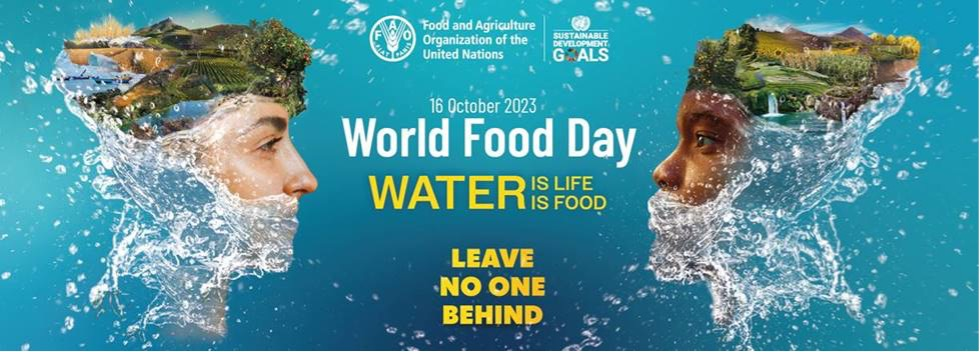
World Food Day, celebrated on October 16th every year, is an occasion to reflect on the critical nexus between water and food. The 2023 theme, ‘Water is Life, Water is Food. Leave No One Behind,’ underscores the pivotal role of water in sustaining life on Earth and as the foundation of our food supply.
This theme is especially pertinent given the looming threats posed by rapid population growth, economic development, urbanization, and climate change to water availability.
The Global World Food Day Ceremony is set for October 16, 2023, and it’s going to be an informative event. Leaders, experts, and people who care about this issue from all over the world will come together to talk about smart water management. This event will highlight how water and food are connected and look for ways to make sure everyone has enough water and food for the long term.
The third edition of Junior World Food Day, happening on October 19, 2023, is an exciting event meant to inspire young minds. It will include stories, music, art, and dance, creating a fun-filled gathering for kids and special guests to talk about water conservation.
By getting young people involved, World Food Day aims to pass on the message of protecting our planet’s water to the next generation, who will be responsible for looking after our water resources.
Denver Water Conservation Campaign
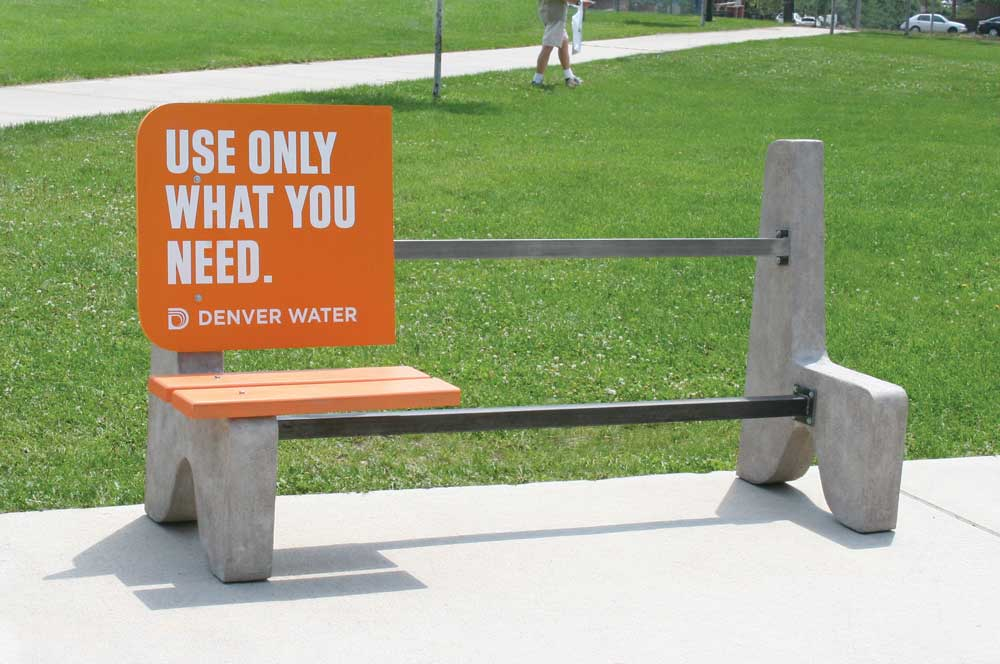
Denver Water has been at the forefront of water conservation campaigns. Their renowned “Use Only What You Need” campaign, initiated in the aftermath of the 2002 drought, captured the essence of responsible water use with a touch of humor. The campaign featured striking visuals, such as a park bench designed for a single person and playful suggestions like showering with a friend to save water.
The “Use Only What You Need” campaign was a big hit. It helped Denver Water customers cut their water use by an impressive 22% compared to before the drought. This campaign used a friendly and effective approach, and it’s now a role model for water conservation efforts all around the world.
In 2015, Denver Water started a new campaign called “Life is Better With Water” to address important water-related issues like climate change, population growth, infrastructure upgrades, and removing lead service lines. This campaign highlights the essential role water plays in Colorado’s way of life. The main message is simple: water isn’t just a resource; it’s the core of our existence.
Kathie Dudas, the manager of brand and marketing at Denver Water, expressed the campaign’s significance, stating, “Water is our most valued resource, not just at Denver Water, but among our customers as well.” “Life is better with water” is the mantra of this year-round campaign, underscoring the enduring commitment to water conservation.
Singapore’s “Make Every Drop Count” Water Conservation Campaign

Singapore, a city-state known for its visionary approach to water management, has set a global example with its “Make Every Drop Count” water conservation campaign. Launched by PUB, Singapore’s National Water Agency, this campaign is an integral part of the nation’s sustainability efforts.
Singapore’s 2023 campaign for World Water Day is all about the theme “Simple Actions, Sustainable Future.” It highlights how people, communities, and businesses can play a part in sustainability by rethinking their water use and adopting responsible water habits.
The campaign highlights the power of small actions when everyone joins in. These actions include saving water at home, recycling and reusing water, and using efficient water processes in industries. It’s all about showing that saving water is something we can all do together to protect the environment and Singapore’s water supply.
Singapore water conservation campaigns show how combining awareness and action can drive real change. It reminds us that making a difference in water conservation happens when people and organizations make it a fundamental part of their daily lives and operations.
Summing Up
The global water conservation movement is crucial in dealing with water scarcity and climate change. These campaigns use education, awareness, and incentives to change how people act and help with the water crisis. Moving from knowing about the problem to doing something about it can be tough, but successful campaigns show that when we work together and engage our communities, we can make a real difference. With water scarcity and climate change becoming more serious, let’s get inspired by these campaigns and join in to save our most important resource: water.
